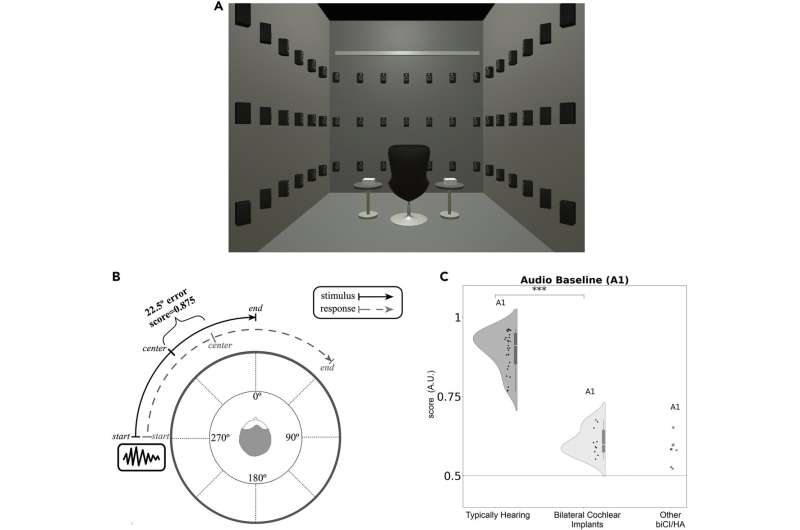The research, recently published in the journal iScience, highlights the challenges faced by individuals born with hearing impairment, even after years of hearing aid use or cochlear implantation.
“We intentionally chose people born with congenital auditory deprivation because these individuals offer a unique opportunity to explore how sensory representations are formed,” explains Dr. Adi Snir, first author of the paper and postdoctoral fellow at the BCT Institute.
“What we found were severely impaired auditory spatial capabilities, with significant difficulty in localizing sounds, especially when tracking moving sound sources, even among individuals with bilateral cochlear implants.”

